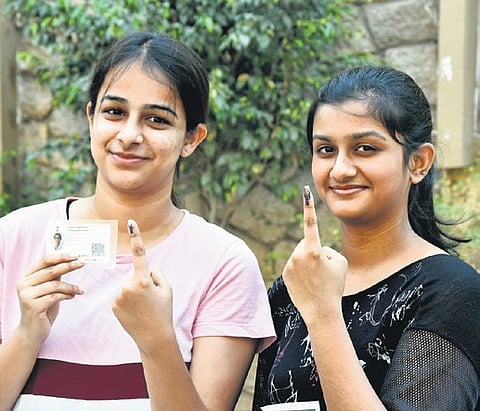

CHENNAI: Climate change is emerging as a pivotal factor shaping the preferences of first-time voters in Tamil Nadu ahead of the Lok Sabha polls, according to a recent survey.
The survey titled ‘Perception of First-Time voters on Climate Education in India’, conducted by Asar Social Impact Advisors, Climate Educators Network and CMSR Consultants, revealed that over half of the surveyed first-time voters in Tamil Nadu identified the commitment of political candidates and parties to address climate change as a significant determinant of their voting decisions. This may signify a shift in voter priorities towards environmental concerns, indicating a growing recognition of the urgency of climate action among the youth demographic.
Young protesters are increasingly part of agitations such as the ongoing protests against Parandur airport and Coromandel International at Ennore. As part of the study, 1,600 first-time voters across seven cities in Tamil Nadu, Maharashtra, Delhi and West Bengal participated. In Tamil Nadu, the survey was conducted in Chennai and Coimbatore and the stakeholder group comprised individuals aged between 18-22, with demographics including gender, education and income levels to ensure a comprehensive range of perspectives.
A majority of respondents expressed belief in the effectiveness of climate education as a means for the government to address environmental challenges. Sundarrajan G of Poovulagin Nanbargal, a Chennai-based climate advocacy group, said: “This is throwing light on the fact that young people are becoming more aware about climate change and is showing political parties that youth are concerned. Tamil Nadu political parties will have to up their game and respond to this call.”
On the other hand, the survey also revealed some significant gaps in understanding and perception. Many participants exhibited confusion between environmental studies and climate education.
Pallavi Phatak, head of climate and education, Asar Social Impact Advisors, said, “This indicates that there is no coherent thinking on a climate change curriculum and pedagogy. Young people are unclear about what knowledge and skills they can and should be equipped with, for climate action and to thrive in their future impacted by climate change.”